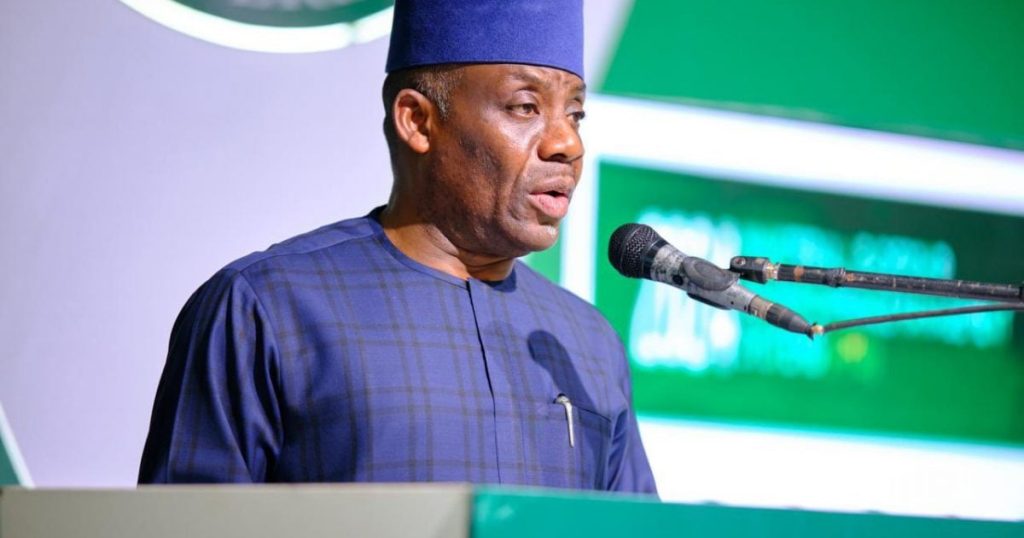The Senior Staff Association of Nigerian Universities (SSANU) and the Non-academic Staff Union of Universities and Allied Institutions (NASU), operating under the umbrella of their Joint Action Committee (JAC), have extended their strike ultimatum to the Nigerian Federal Government by an additional two weeks. This extension follows an initial seven-day ultimatum issued over unresolved welfare concerns, primarily focusing on perceived injustices in the disbursement of earned allowances, non-payment of outstanding allowances, and other related issues. The unions’ decision reflects their growing frustration with the government’s perceived inaction in addressing their long-standing grievances. This escalating tension underscores the ongoing challenges within the Nigerian university system and the precarious state of labor relations between the government and university staff.
The initial seven-day ultimatum, communicated to the government on June 18, 2025, prompted a meeting with the Minister of Education on July 4, 2025. However, the lack of tangible progress following this meeting led the unions to issue the ultimatum, signaling their intent to embark on a series of industrial actions if their demands remained unmet. The subsequent meeting with the Permanent Secretary of the Ministry of Education, Abel Enitan, on September 19, 2025, along with representatives from the National Universities Commission (NUC), the Federal Ministry of Education, and the Federal Ministry of Labour and Employment, failed to yield concrete resolutions. While the meeting acknowledged the unions’ concerns, the absence of definitive solutions prompted the JAC to extend the ultimatum, giving the government additional time to address their demands.
The crux of the unions’ grievances lies in the perceived inequitable distribution of earned allowances. They allege that the disbursement process has been unfair, leaving many of their members feeling shortchanged. This issue, coupled with the non-payment of outstanding allowances, has fueled discontent and a sense of injustice among SSANU and NASU members. The unions argue that these unresolved financial issues are demoralizing and negatively impact their members’ welfare and their ability to perform their duties effectively. They believe that the government’s failure to address these concerns demonstrates a lack of commitment to the well-being of university staff and the overall stability of the university system.
The two-week extension of the ultimatum, effective from September 23, 2025, offers a final window of opportunity for the government to engage constructively with the unions and find a mutually acceptable solution. The JAC has made it clear that this extension is not a sign of weakness but rather a demonstration of their willingness to allow for further dialogue and negotiation. However, they have also emphasized that failure to achieve tangible progress within this timeframe will inevitably lead to industrial action. This firm stance underscores the seriousness of the situation and the unions’ determination to secure a fair resolution to their grievances.
The potential consequences of a strike by SSANU and NASU could be significant, disrupting university operations and potentially impacting the academic calendar. The non-academic staff play a crucial role in the day-to-day functioning of universities, providing essential administrative, technical, and support services. A strike by these unions could lead to the closure of laboratories, libraries, and other vital facilities, affecting teaching, research, and student services. Such disruption could have far-reaching implications for the quality of education and the overall academic progress of students.
This ongoing dispute highlights the broader challenges facing the Nigerian education sector, including funding limitations, infrastructure deficits, and the need for improved working conditions for university staff. The government’s ability to address these concerns effectively will be crucial in ensuring the stability and continued development of the university system. The two-week extension presents a critical opportunity for both sides to engage in meaningful dialogue and find a lasting solution that safeguards the welfare of university staff and protects the integrity of the Nigerian education system. The outcome of this period will be pivotal in determining the future of labor relations within the university sector and the overall stability of the academic environment.














